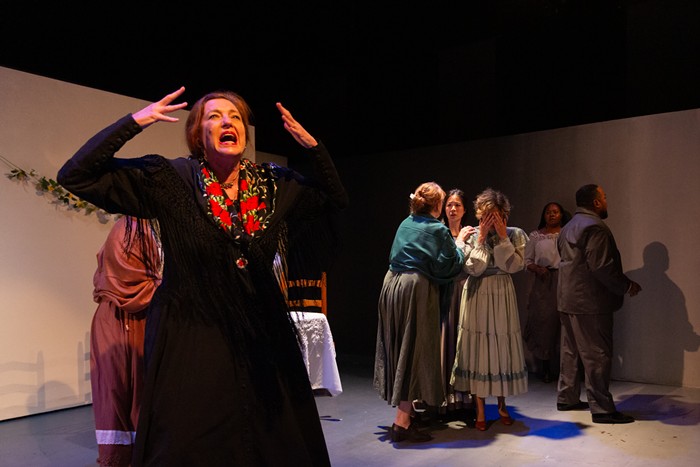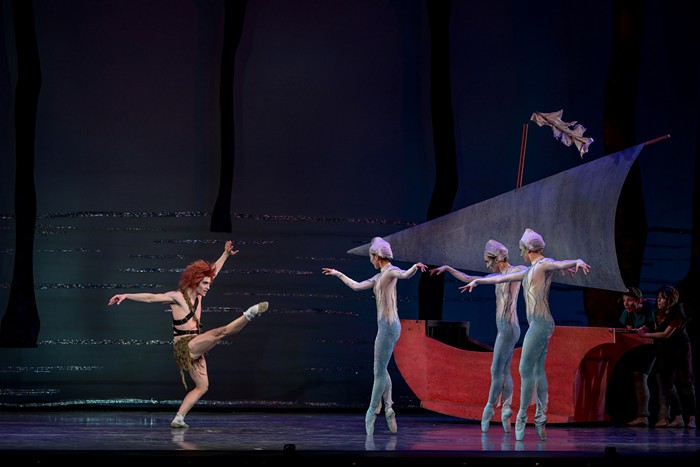Vitriol and Violets: Tales From The Algonquin Round Table
(Cygnet Theatre)
Through May 18
Cygnet Theatre took on a daunting task when it set about portraying some of the most fascinating literary figures to come out of 1920s New York. The cast is comprised of members of an elite lunching group of notoriously quick-witted and sharp-tongued luminaries who met regularly at the Algonquin Hotel. A few among these are Dorothy Parker, Alexander Woollcott, George S. Kaufman, Franklin Pierce Adams, and Harold Ross. Their professional output ran the gamut from movie and theater reviews to illustration and poetry. Many of their quotes have graduated from fame to cliche in the colloquial English of America, so pervasive was their influence.
Intimidated by their subjects' own talents, the writers of this original script, Shelly Lipkin, Louanne Moldovan, and Sherry Lamoreaux, chose to construct the dialogue largely out of the characters' own quotes and published works. They then whittled out a narrative plot that serves as a skeletal showcase for various snide one-liners and assertions. Although inevitably rife with funny moments, this approach seems low-slung. It might have benefited from the infusion of contemporary, competitive wit rather than resting on its laurels amid recitations. There is a sense that some degree of the amusement comes simply from the sheer glee of recognition, rather than novelty.
The overall effect of Vitriol is one that is best suited for an audience already familiar with and fond of its historical basis. Because the play does not embellish the characters beyond the reputations and evidence that precede them, they are an animated museum of newspaper snippets and boozy repartee. There is little investment in their ability to inspire sympathy. This is compounded by the lack of a dramatic focus or problem. Instead, they reel sassing and debauching around. There is a concentration on feminist ideals held amongst the circle, and such moments are Vitriol's closest approximation to gravity.
The actors are aptly cast and shoulder their characters' heavyweight personalities with gumption. Backed by an exquisite set, they are a handsome and promising cast. However, the opening of the run apparently caught them short, as they carried copies of the script and read their lines. It seems odd that they would be so obviously unprepared as to inspire mental searches for plausible artistic justifications and explanations. Barring prolific brainstorms on that front, it would be fortunate if they flesh out the solid performance they foreshadow before the end of the production's run.


















